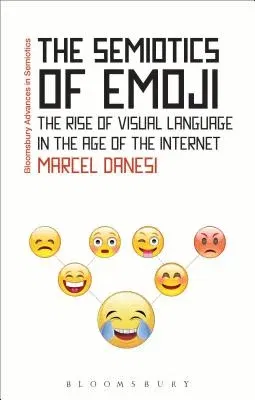Marcel Danesi
(Author)The Semiotics of Emoji: The Rise of Visual Language in the Age of the InternetPaperback, 17 November 2016

Qty
1
Turbo
Ships in 2 - 3 days
Only 2 left
Free Delivery
Cash on Delivery
15 Days
Free Returns
Secure Checkout

Part of Series
Bloomsbury Advances in Semiotics
Print Length
208 pages
Language
English
Publisher
Bloomsbury Academic
Date Published
17 Nov 2016
ISBN-10
1474281982
ISBN-13
9781474281980
Description
Product Details
Author:
Book Format:
Paperback
Country of Origin:
US
Date Published:
17 November 2016
Dimensions:
21.59 x
13.72 x
1.27 cm
ISBN-10:
1474281982
ISBN-13:
9781474281980
Language:
English
Location:
New York
Pages:
208
Publisher:
Weight:
226.8 gm